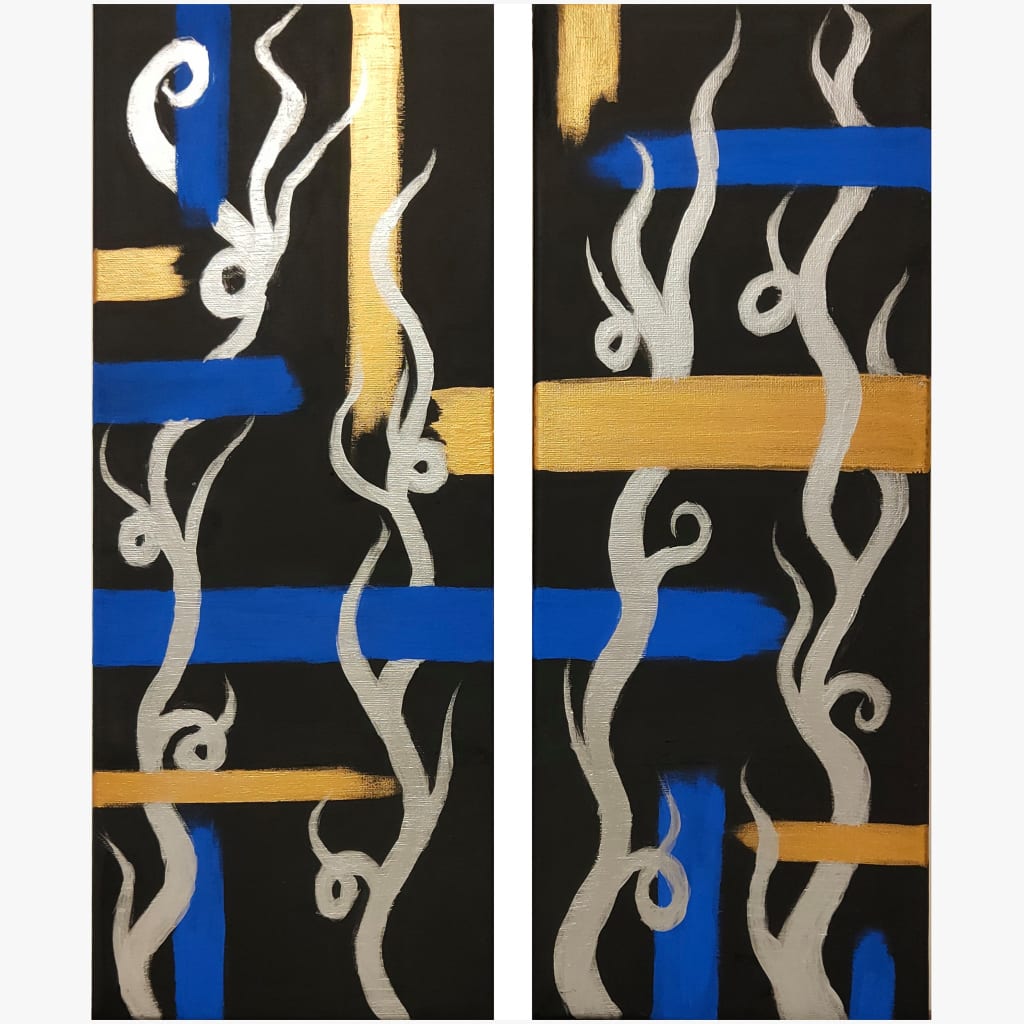
About eight years ago, my cousin told me that she'd been diagnosed with ADHD. She'd been medicated. It had been transformative, transcendental for her: she realised that this is what it must be like for other people, she said, to concentrate, to focus, to not lose things or forget they exist once out of your sight, to have the mental clarity of one's best days almost every day instead of as a rare treat.
I was interested, and it resonated, but I didn't connect the dots.
Not then.
I was a precocious, imaginative child. I read voraciously. I couldn't connect with children my own age, but held my own in conversation with adults (although I'm sure my opinions and knowledge were naive). I drew everywhere--my schoolbooks were full of doodles, often at the expense of the notes I was supposed to be taking. I lost things all the time. Often I lost things in my own house (somewhere in the untamed chaos of my room) but it was practically guaranteed I would lose something valuable if I took it outside. I chewed my hair and nails thoughtlessly. I often did clumsy things because I wasn't paying attention: I fell down every flight of every staircase in my high school, and it was a school with many staircases.
In the eight years since I spoke to my cousin about her diagnosis, I've seen a massive uptick of information about ADHD and how it presents in those assigned female at birth--less hyperactivity, more distractedness, often written off as being 'scatterbrained' or 'ditzy' instead of a clinical mental problem.
It manifests as being fidgety, as being distracted, lost in one's thoughts or daydreams (or just being entirely empty in the head). It manifests as doodling or tapping one's feet or chewing one's hair instead of hyperactively running around or causing mayhem. It manifests in not paying attention, in losing things, in forgetting what one owns, in dissociating for hours by reading or scrolling through social media or similar.
I wasn't raised very close to my cousin. I actually have no idea how it presented in her, or what made her seek a diagnosis. All I know is that, like me, it ruined her schooling, made her tumble from an A* student to a D as soon as we were expected to take responsibility for time management and submissions without strict supervision.
About a year ago, and I don't know precisely which one of the many social media 'ADHD symptoms' posts triggered it, I finally thought: so many of these resonate with me. Maybe I should investigate the possibility of a diagnosis.
I'm forty and present as female. I kept seeing people tell me that ADHD in women wasn't taken seriously, that ADHD in anyone over the age of 20 wasn't taken seriously, that having another mental health diagnosis already--I'm bipolar--would mean that I would have to fight and protest and wrestle all the way if I wanted to pursue a diagnosis.
Happily, this wasn't the case for me. I suggested to my GP that I thought I might have ADHD. She made uncertain 'are you sure?' noises, and in fact rather distressed me with what sounded like a suggestion that my queerness might be a pathology too. Mercifully, despite my coming out of that phone call thinking she'd never refer me and I should seek a new GP who was less homophobic-seeming, I received a notification within the week that I'd been referred across to the Psychiatry UK folks, who set up a videocall with a specialist a month later.
I had to submit some forms--I joked to my wife that surely submitting them in a timely fashion would disqualify me--and my wife, as an observer, had to submit what she described as a list of complaints about my forgetfulness and clumsiness. I submitted all the completed forms within two hours of being given them, knowing that if I didn't do so I would forget it was necessary.
By the time the meeting rolled around, I was very nervous. Was I fooling myself? Was I just a scatty, flighty person looking for an excuse? What if I was just scatterbrained, with no reason for it?
I had my call. I was questioned closely by the very pleasant specialist who asked me about my childhood, my teen years, my work, my hobbies, my relationship, my finances, various traumas--he wanted to know how the symptoms I was describing had affected every part of my life, if they'd truly had an adverse effect on me. My wife, listening from another part of the room, was a bit startled by how thoroughly I was being interrogated.
50 minutes after he introduced himself to me, the specialist said, well, you're definitely ADHD. Talk therapy is rarely effective, so we wouldn't recommend it. Get your pulse, weight, height, and blood pressure measured, and we'll prescribe you medication.
My blood pressure monitor machine arrives tomorrow. I have an echocardiogram to schedule--family heart problems mean they want to just check--and then the hunt for the correct medication to assuage my ADHD symptoms begins.
I have an answer to the question I've been hearing for the better part of forty years, every time I forget things or mess up due to inattention: why are you like this?
The answer: I have ADHD.
And if the medication works, I'll be able to be less like that.






Comments
There are no comments for this story
Be the first to respond and start the conversation.